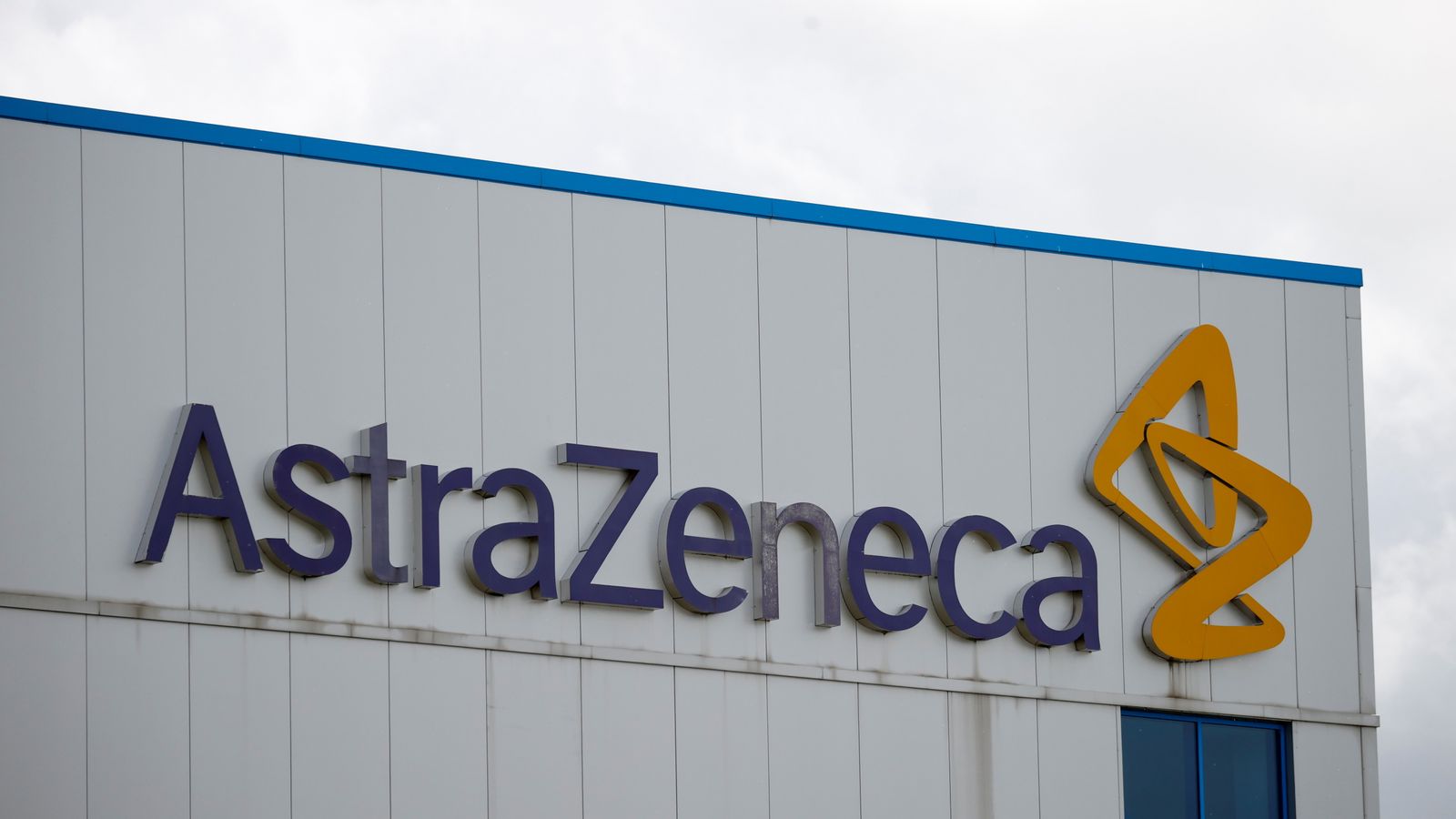Drugs giant AstraZeneca has seen off a shareholder rebellion aimed at curbing future pay-outs to its chief executive Pascal Soriot.
This was despite a concerted campaign by shareholder advisory groups, including Glass Lewis, PIRC and ISS, in which they urged investors to vote down the company’s proposals.
The key issue at stake was not the advisory vote on Mr Soriot’s £15.4million pay package in respect of the year just gone – around a quarter of which was a direct result of a rise in AZ’s share price.
Investors at the annual meeting held today voted by a margin of 60.19 to 39.81 to approve the company’s remuneration policy with 71.5% of all shares being voted.
What had attracted the ire of the rebels was a second proposal by AZ to increase the value of the shares that could be awarded to the Frenchman under its long term incentive programme.
The company wanted to raise the maximum award possible for Mr Soriot from 550% of his base salary to 650%.
That could put Mr Soriot in line for a share award of as much as £8.6million assuming all of his targets are achieved.
The company also proposed increasing the maximum cash bonus that Mr Soriot could earn from 200% of his base salary to 250%.
This, potentially, put Mr Soriot in line for a maximum pay-out of a further £3.3million.
The Investment Association, the highly influential industry body for fund managers, went so far as to issue a so-called ‘amber top’ warning – its second-highest level of alert – concerning the changes.
Fund managers including Aberdeen Standard Investors and Aviva Investors were both reported at the weekend to be voting against.
A third shareholder, EdenTree Investment Management, called the proposals “wrong and ill-judged”.
Ranged against them were other fund managers anxious to minimise the risk of the highly-regarded Mr Soriot leaving AZ.
There were a couple of reasons for the opposition.
The first was that awards of this kind are generally only reviewed every three years and that AZ had only revamped its remuneration policy a year ago.
The second was that the potential share awards payable to Mr Soriot were substantially higher, as a multiple of base salary, than those paid to other chief executives in FTSE-100 companies of comparable size.
There was also unease that the company was appearing to justify the increase on the grounds that AZ is in the process of completing the blockbuster $39billion acquisition of the rare diseases specialist Alexion.
City investors tend to prefer to issue bonuses in respect of mergers and acquisitions after they have been completed – and can be demonstrated to have generated value for shareholders – rather than before they have been completed.
AZ had argued strongly in favour of the proposals and said they were justified in view of the company’s strong performance during the last eight years under Mr Soriot’s leadership.
It said: “This has resulted in AstraZeneca delivering a Total Shareholder Return of close to 300% over the last eight years, significantly ahead of our global pharmaceutical and FTSE 100 peers (at 183% and 44% TSR respectively).
“The board wants to ensure that our remuneration policy keeps driving a performance in line with the ambitious expectations of our shareholders and other stakeholders.”
The vote was a binding one in which AZ needed a simple majority of 50% plus one share to pass.
Shareholders also nodded through the proposed Alexion takeover.
Subscribe to the Daily podcast on Apple Podcasts, Google Podcasts, Spotify, Spreaker
AstraZeneca said after the meeting that it recognised a “meaningful proportion of shareholders” had not been able to support the new policy or changes to the share award plans. It said it would “continue to engage and listen”.
But it added: “[We] wanted to update the remuneration policy to acknowledge that the world drastically changed in the last 12 months, and so did AstraZeneca.
“Our executive directors have demonstrated solid and visionary leadership to steer the company towards delivering another outstanding performance in terms of achieving stretched financial goals, over-delivering pipeline management targets to accelerate innovation, and negotiating new partnerships with great potential.
“They also initiated an impactful societal, non-profit initiative – in partnership with University of Oxford – as a response to the global pandemic, resulting in the development, production and supply of an effective vaccine in less than a year.”
The episode may prove a setback for the firms which advise institutional investors on how to vote at shareholder meetings.
The likes of Glass Lewis and ISS have been accused for years now of taking an overly prescriptive, box-ticking approach to corporate governance rather than adopting a pragmatic, company-by-company approach.
That would have helped here in the case of Mr Soriot who is, unquestionably, is one of the best chief executives of his generation.
When he arrived at AZ, in 2012, the company was at a low ebb. Its big drugs were coming off-patent and it did not appear to have new blockbusters in its pipeline to replace them.
The company was a sitting duck when, in May 2014, Pfizer made an unwanted £69.4billion takeover approach.
Subscribe to the Daily podcast on Apple Podcasts, Google Podcasts, Spotify, Spreaker
Mr Soriot convinced investors to stick with him and promised they would be better off as a result.
Within five years of the takeover battle, Mr Soriot could point to tangible progress, with AZ shares trading comfortably above the price Pfizer had offered.
AZ had delivered on its promises thanks to a host of blockbuster drugs in its three core therapy areas of oncology, respiratory and immunology and cardiovascular, renal and metabolism.
And all this was before AZ played a heroic role in the roll-out of the COVID-19 vaccine it developed in partnership with the University of Oxford.
The company has been widely praised for supplying the vaccine at cost, unlike some of its competitors, including Pfizer.
AZ’s most recent financial results revealed that, in fact, its involvement in COVID vaccine roll-out has actually cost it money.
This stellar performance has made Mr Soriot, who in 2018 told The Sunday Times he was the lowest-paid chief executive in the industry, hot property.
AZ was rattled when, in 2017, it was reported that Teva, one of Israel’s top pharmaceutical companies, had offered him the job of chief executive.
There is little doubt that, were he to leave in the current circumstances, AZ’s share price would fall.
So the advisory firms probably picked the wrong battle in this particular instance.
It would have been understandable had their target been a struggling company or if they were opposing a big increase in the pay package of a failing chief executive.
In this case, though, they picked on a successful company and a superstar CEO. They have emerged looking every bit as prescriptive and box-ticking as their critics say they are.






















